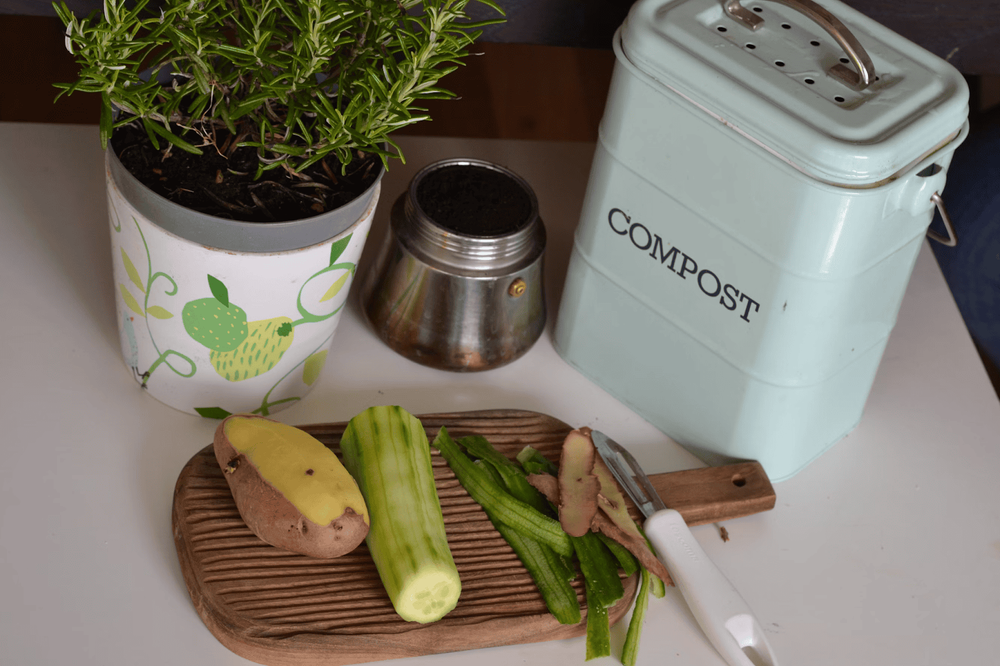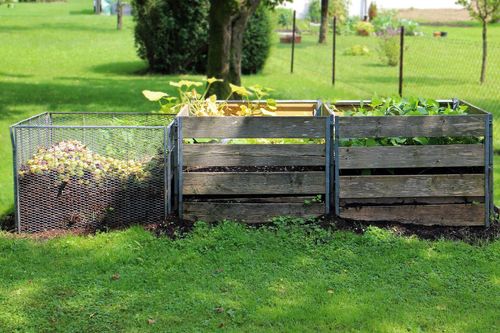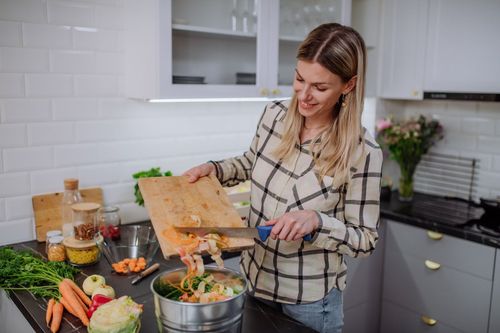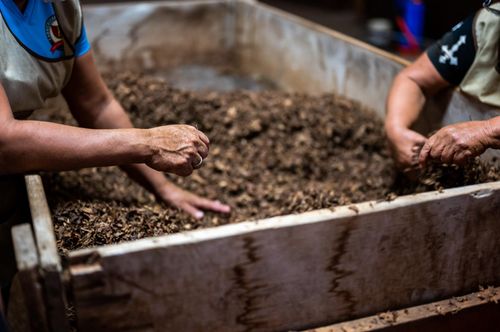Why Composting Is One of the Best Changes You Can Make for the Environment
4 minute read

When looking for ways to mitigate their environmental impact by reducing how much waste they create, people often turn to recycling as their eco-friendly good deed. And while it’s true that plastic does contribute significantly to climate change and pollution, the impact of food waste is overlooked.
Up to 10% of global greenhouse gasses come from food produced but not eaten - AKA food waste. While you may think you eat all the food on your plate, remember that peelings, your pizza crusts, and your leftover soggy veggies are included in this stat.
Over 30% of food is lost or wasted yearly, which amounts to around 1.3 billion tons.
Naturally, there are plenty of ways to reduce your food waste in the first place, but sometimes it’s inevitable that we’ll have leftovers, food that has prematurely gone off, or peelings that can’t be used. In that situation, the best thing to do is compost.
And the best part is, you can do it from the comfort of your own home.
But just why is composting so important? And is it accessible, even for a complete beginner? Let’s find out.
The Benefits of Composting
Composting has tons of benefits - not just for the environment but for you, too. Here are some of the main reasons why you should consider composting. And if you’ve been putting it off, here’s why you should start now.
Removes Waste From Your Bin
There’s nothing worse than waiting for your bin collection to come with an overflowing bin that risks attracting pests. With a compost bin, you can reduce the size of the pile of trash you take out every week because around 30% of it will be diverted to the compost bin.
Not just better for the planet, but better for the stench in your kitchen, too!
Make Your Garden Healthier
If you’re into gardening, compost is an absolute game-changer. Compost helps plants to grow by balancing soil density and providing plants and crops with much-needed nutrients.
Compost helps to loosen soil that’s too tight or clump soil that’s too loose together. This allows plants to develop healthier roots - which is the root (pun intended) of plant growth. Better soil structure is supportive for plants, ensuring that they grow to be as strong as they should be.
Compost also allows your soil to drain more effectively, which prevents plants from getting waterlogged.
Whether you’re a gardener who hasn’t yet discovered the wonders of compost or you’re new to gardening and wondering how to make your plants thrive, you’ll be wowed by just how adequate compost can be. And it’s even more satisfying when you’ve made it yourself!
Do Your Part for the Planet
Food waste is a huge problem, as is plastic pollution. Not only does throwing things away unnecessarily create huge trash pile-ups, but it also releases harmful gasses.
When food goes to landfill and rots without the necessary space to breathe, it produces methane, a greenhouse gas that’s even more harmful than carbon dioxide.
When you compost, you prevent a significant amount of your rubbish from going to landfill, which, in turn, helps look after our environment.
Saves You Money
Every keen gardener knows one thing for sure - when bought from a shop, compost is expensive. By making your own compost from home, you can save yourself a ton of money while feeling better about your environmental impact.
Don’t already use compost as part of your garden routine? You should start! It helps your plants to grow stronger and more quickly by giving them important nutrients they need. Now might just be the time to start growing that strawberry patch you’ve always dreamed of.
What Can You Compost?
The good news is, there’s actually a ton of stuff you can compost. A lot of it is more obvious things, such as garden waste and leftover food, but many of the everyday products you use might also be compostable without you noticing.
Items like bamboo toothbrushes and even some types of makeup can be composted, so next time you go to throw something in the trash, check the label to see if you can compost it instead.
What Can’t You Compost?
That’s a great question! Contrary to popular belief, you can’t just compost any leftover food. While most fruits and veggies are perfect for going in your at-home compost bin, avoid anything with pesticides directly on it, as this can harm some of the organisms in your compost pile.
Don’t compost meat, fish, or bones.
These can attract pests, plus the fact that fatty materials don’t decompose the same as others, so you might end up stuck with a compost pile full of meat that won’t compost.
You should also avoid pet manure in crops that you plan on using to grow food. Black walnut leaves should also be avoided in your compost bin (we know they’re rare, but just in case!).
How Easy is Home Composting?
Believe it or not, it’s super easy to compost at home, and you don’t need specialist material to do it. You can actually create a compost bin out of a plastic box with holes drilled into it.
Composting requires getting the right mix between wet and dry - between carbon-rich matter like dried leaves, sawdust, and egg shells and nitrogen-rich matter like manure, food scraps, grass clippings, and kitchen waste.
For a successful compost bin, you should aim to have one-third nitrogen and two-thirds carbon-rich materials. This will allow oxygen to penetrate the compost heap and nourish the organisms in there.
Getting this combination right is key to creating compost that will enrich your soil, helping your plants grow stronger and more quickly than ever before.
So the next time you wonder whether to add ‘start a compost bin’ to your to-do list, the answer is yes! Composting can save you money, save the planet, and enrich your garden with nutrient-rich soil that helps plants, flowers, and crops grow.


